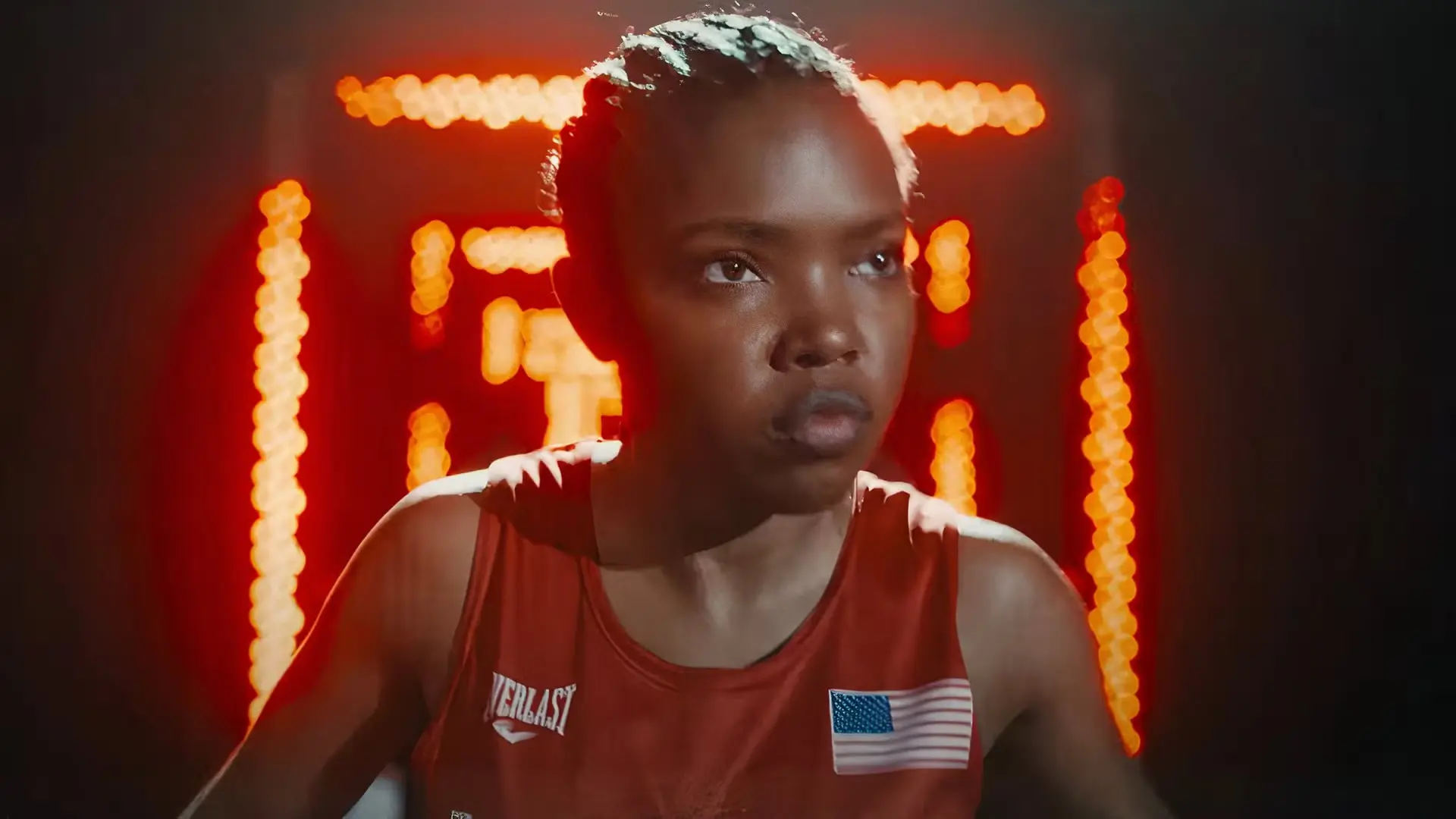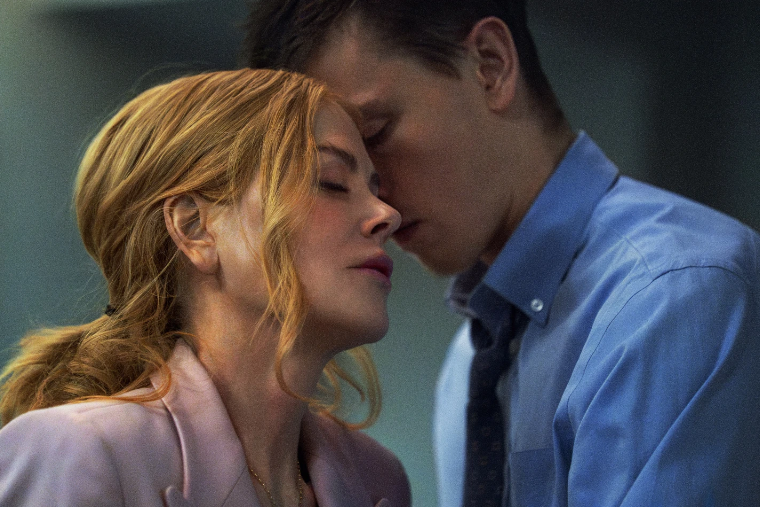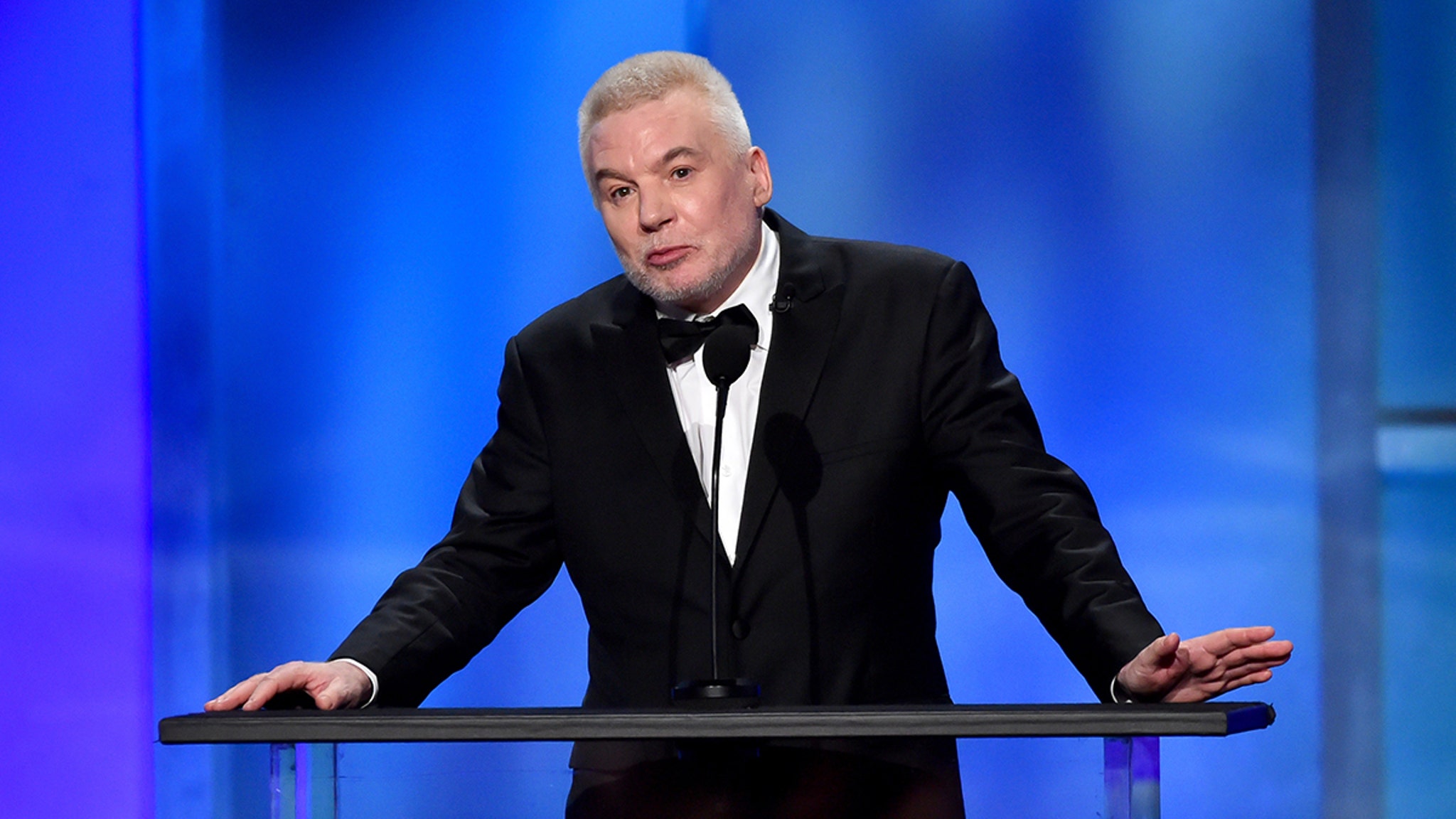Movie Reviews
‘A Family Affair’ Review: Nicole Kidman and Zac Efron in a Netflix Rom-Com That Charms Despite Missteps

Throughout A Family Affair, daughter Zara (Joey King) and mom Brooke (Nicole Kidman) argue over just what kind of a man Chris Cole (Zac Efron) is. To Zara, he’s a self-absorbed movie star boss who oscillates between unreasonable demands and threats of firing. For Brooke, he’s an attentive lover, the first man to reawaken her to the possibility of romance since the death of Zara’s father, Charlie.
Neither of them are exactly wrong — Chris, like anyone, contains multitudes. Where the Richard LaGravenese-directed A Family Affair struggles, however, is in convincing us he might be both at once. Part showbiz send-up and part earnest romantic drama, the film lurches awkwardly between its two modes without settling on a single cohesive tone. Fortunately, both halves are also blessed with the same quality that allows Chris to embody both Zara’s idea of him and Brooke’s: enough charm to make you come away smiling, even as you shake your head at its missteps.
A Family Affair
The Bottom Line Efron delights in an uneven but enjoyable romance.
Release Date: Friday, June 28 (Netflix)
Cast: Nicole Kidman, Zac Efron, Joey King, Liza Koshy, Kathy Bates, Sherry Cola
Director: Richard Lagravenese
Screenwriter: Carrie Solomon
Rated PG-13,
1 hour 51 minutes
The first Chris we meet is the obnoxious one. Onscreen, he’s the Marvel-style hero of a terrible-sounding franchise called Icarus Rush; offscreen, he’s a vain man-child pitching hissy fits at Zara. He calls her at odd hours to send her looking for protein powder, and makes her assemble gift baskets for his dogs with her own money. He runs through girlfriends like tissues, then sends her to pick up his stuff from their houses. He strings her along with the promise of an assistant producer credit, but continually insists she’s not “ready” to do much more than pick up his dry cleaning. None of these gags are especially fresh — Chris is simply every spoiled Hollywood stereotype rolled into one. But screenwriter Carrie Solomon comes at them with the wry fondness of an insider who knows just how ridiculous her industry can be.
They’re further elevated by Efron, who was last seen in the weepie The Iron Claw but reminds us here that he’s an even better comic talent than a dramatic one. His crackerjack timing turns decent jokes into laugh-out-loud hilarious ones, and his puppyish sweetness keeps Chris endearing at his worst. His (platonic) dynamic with King positively crackles with both exasperation and begrudging affection. At one point, Chris scoffs that it’s “derogatory” for her to call him a celebrity because he’s a movie star, damnit. The moment plays as a joke, but it also contains a kernel of truth. Like The Fall Guy, A Family Affair serves as a testament to the power of movie-star charisma while simultaneously poking fun at it.
All this Hollywood satire is merely set-up for the real plot of A Family Affair, which kicks in once Chris invites himself over to the home Zara shares with her mother. While waiting for her to show, he and Brooke get to talking over tequila shots. The next thing either of them know, Brooke is ripping open the very t-shirt that Chris, only the day before, had screamed at Zara for not treating more gently.
At first, the hook-up is played for laughs. Chris remains his ditzy self, wooing Brooke from lines with his own movies. (“This time I mean it,” he insists when she teasingly calls him out on it.) Zara is so startled to find her mother in bed with her employer that she goes full slapstick, choking on a grape and knocking herself unconscious. Fumbling to explain, Brooke accidentally invokes the same excuse Zara gave her for getting a forbidden eyebrow piercing as a teen: “It made sense at the time when the guy was putting it in.”
But A Family Affair takes on a more sincere and sentimental tone as the hook-up evolves into something deeper. Kidman and Efron share a decently sweet chemistry that’s nothing like the tawdry dynamic they flaunted in The Paperboy. Chris gets vulnerable about his childhood tragedies and the loneliness of fame. She confesses it’s been years since she felt desired, and allows herself the luxury of “going a little crazy” for the first time since she can remember. Although there are moments when the film goes big with expensive dinners and private studio tours and an adorably quirky third-act gesture, the relationship is generally pitched as a slow-burn love affair, not an impassioned fling.
In fact, A Family Affair barely leans into the fairy tale of dating a rich and sexy A-lister. In contrast to The Idea of You, with which it shares a superficially similar premise, the film is largely unconcerned with the specific perks or challenges of dating while famous. Brooke is unfamiliar with Chris’ career, and she does not need him to whisk her away on vacations or bring her to fancy galas; she’s done well enough already to have her own cliffside mansion and closet full of designer dresses. Though Chris can’t so much as go for a grocery run without getting swarmed, the couple do not discuss what it might mean to go public with their relationship — and they never have to, since it somehow never happens. The biggest threat to their connection is Zara’s disapproval, not the gap in age and social standing.
The fantasies that the movie does tap into are more mundane, and almost more poignant for it. One is of being a female writer whose talent attracts, rather than intimidates, an eligible suitor. Brooke recounts how fellow writer Charlie seemed to resent her success; Chris, on the other hand, goes out of his way to find her writing, and even memorizes her best bits by heart. The other is of being a mother whose child finally appreciates her sacrifices. All three lead characters could be accused of making short-sighted or self-serving choices. But it’s Brooke the movie portrays as a saint who’s earned whatever happiness she can get, and Zara who’s made to apologize for being selfish.
Parallels are drawn between Brooke lovingly tending to Zara’s every need through a difficult childhood and Zara catering to Chris’ now. I’d point out that those situations are not remotely the same, and in fact have no business being in the same conversation — just as A Family Affair‘s Hollywood material and its drama feel at times like they’ve come from two completely different films. But the lines are delivered with such heartfelt tenderness that for a moment, you might be moved in spite of yourself.

Movie Reviews
Film Review: The Fire Inside – SLUG Magazine

Film
The Fire Inside
Director: Rachel Morrison
Michael De Luca Productions, PASTEL
In Theaters: 12.25
I’m not a fan of combat sports in real life, yet I find that movies about them are nearly irresistible. Whether it’s Rocky, The Karate Kid, Warrior or the upcoming wrestling flick Unstoppable, the underdog who comes out swinging and bests their bigger, more experienced opponent always plays. It’s also nearly always the same movie, and that’s what makes The Fire Inside a knockout.
In this fact–based story, Claressa Shields (Ryan Destiny, A Girl Like Grace, Oracle) is a young woman from Flint, Michigan, who has one skill and one passion: boxing. Despite limited support from her family, Claressa is taken under the wing of Jason Crutchfield (Brian Tyree Henry, If Beale Street Could Talk, Godzilla vs. Kong), a coach at a local gym. As Jason becomes as much a surrogate father as a coach, Claressa trains with a ferocious determination and earns a spot on the 2012 Summer Olympic team — Claressa “T-Rex” Shields becomes the first American woman to take home the gold in the sport at age 16. From there, Claressa goes from being a poor inner city kid with nothing to … a poor inner city kid with a gold medal overnight. There are no endorsement deals, no professional career and seemingly no new worlds to conquer. As Claressa fights discouragement, she must find a path to lead her beyond a one time victory into a lasting better life.
Rachel Morrison, the first woman to be nominated for an Academy Award for her work on Black Panther, makes a strong directorial debut, coming out swinging. She’s ably assisted by a terrific script by Barry Jenkins (Moonlight). The Fire Inside transcends the tropes of the genre by reaching the rush of climactic fight and then daring not to end there, instead delving into the reality that in Shields’ life, one triumph in the sports world doesn’t change your circumstances, especially for an uncouth young woman with no interest in playing the public relations game and selling a softer, more traditionally feminine image. We’ve heard the cliche “this isn’t just a movie about sports, it’s about life,” but such a candid look at a life-changing moment that does nothing to change your life, and learning how to face this, was something refreshingly new and honest. The often bleak and at times stunningly beautiful cinematography by Rina Yang, along with the stirring score by Tamar-kali, lift the sensory experience and go a long way to making this one a winner.
Destiny shows potential as a breakout star, commanding the screen as effortlessly as Claressa commands the ring. Henry is the highlight of any film he’s in, and The Fire Inside is no exception, with his grounded performance keeping the film moving along and setting the tone for a story about learning that you can still lean on others while you’re believing in yourself. The sizzling chemistry between these two actors drives a poignant and entertaining story to a satisfying and believable conclusion that’s not the one you’re expecting.
The Fire Inside is a breath of fresh air in a genre that far too often settles for stale and dank. It provides enough inspirational warmth to fulfill its duties as an uplifting sports movie, but its got the stamina and the drive to go a few extra rounds and push its own limits. Unlike most boxing films, this champ doesn’t pull any punches. –Patrick Gibbs
Read more film reviews here:
Film Review: A Complete Unknown
Film Review: Babygirl
Movie Reviews
Movie review: Reverence to source material drains life from ‘Nosferatu’

Passion projects are often lauded simply for their passion, for the sheer effort that it took to bring a dream to life. Sometimes, that celebration of energy expended can obfuscate the artistic merits of a film, as the blinkered vision of a dedicated auteur can be a film’s saving grace, or its death knell. This is one of the hazards of the passion project, which is satirically explored in the 2000 film “Shadow of the Vampire,” a fictionalized depiction of the making of F.W. Murnau’s 1922 silent horror film “Nosferatu: A Symphony of Horror,” in which John Malkovich plays the filmmaker obsessed with “authentic” horror.
This meta approach is a clever twist on the iconic early horror movie that looms large in our cultural memory. Inspired by Bram Stoker’s 1897 novel “Dracula” (with names and details changed in order to skirt the lack of rights to the book), “Nosferatu” is a landmark example of German Expressionism, and Max Schreck’s performance as the vampire is one of the genre’s unforgettable villains.
“Nosferatu” has inspired many filmmakers over a century — Werner Herzog made his own bleak and lonely version with Klaus Kinski in 1979; Francis Ford Coppola went directly to the source material for his lushly Gothic “Bram Stoker’s Dracula” in 1992. Now, Robert Eggers, who gained auteur status with his colonial horror film “The Witch,” the Edgar Allen Poe-inspired two-hander “The Lighthouse,” and a Viking epic “The Northman,” delivers his ultimate passion project: a direct remake of Murnau’s film.
His first non-original screenplay, Eggers’ version isn’t a “take” on “Nosferatu,” so much as it is an overly faithful retelling, so indebted to its inspiration that it’s utterly hamstrung by its own reverence. If “Shadow of the Vampire” is a playful spin, Eggers’ “Nosferatu” is an utterly straight-faced and interminably dull retread of the 1922 film. It’s the exact same movie, just with more explicit violence and sex. And while Eggers loves to pay tribute to the style and form of cinema history in his work, the sexual politics of his “Nosferatu” feel at least 100 years old.
“Nosferatu” is a story about real estate and sexual obsession. A young newlywed, Thomas Hutter (Nicholas Hoult) is dispatched from his small German city to the Carpathian Mountains in order to execute the paperwork on the purchase of a rundown manor for a mysterious Count Orlok (an unrecognizable Bill Skarsgård), a tall, pale wraith with a rumbling voice that sounds like a beehive.
Thomas has a generally bad time with the terrifying Count Orlok, while his young bride at home, the seemingly clairvoyant Ellen (Lily-Rose Depp) is taken with terrifying nightmares and bouts of sleepwalking, consumed by psychic messages from the Count, who has become obsessed with her. He makes his way to his new home in a rat-infested ship, unleashing a plague; Ellen weighs whether she should sacrifice herself to the Count in order to save the town, which consists of essentially three men: her husband, a doctor (Ralph Ineson) and an occultist scientist (Willem Dafoe).
There’s a moment in the first hour of “Nosferatu” where it seems like Eggers’ film is going to be something new, imbued with anthropological folklore, rather than the expressionist interpretation of Murnau. Thomas arrives in a Romanian village, where he encounters a group of jolly gypsies who laugh at him, warn him, and whose blood rituals he encounters in the night. It’s fascinating, fresh, culturally specific, and a new entry point to this familiar tale. Orlok’s mustachioed visage could be seen as a nod to the real Vlad the Impaler, who likely inspired Stoker.
But Eggers abandons this tack and steers back toward leaden homage. The film is a feat of maximalist and moody production design and cinematography, but the tedious and overwrought script renders every character two-dimensional, despite the effortful acting, teary pronunciations and emphatically delivered declarations.
Depp whimpers and writhes with aplomb, but her enthusiastically physical performance never reaches her eyes — unless they’re rolling into the back of her head. Regardless of their energetic ministrations, she and Hoult are unconvincing. Dafoe, as well as Aaron Taylor-Johnson and Emma Corrin, as family friends who take in Ellen, bring a winking campiness, breathing life into the proceedings, while Simon McBurney devilishly goes for broke as the Count’s familiar. However, every actor seems to be in a different movie.
Despite the sex, nudity and declarations of desire, there’s no eroticism or sensuality; despite the blood and guts, there’s nothing scary about it either. This film is a whole lot of style in search of a better story, and without any metaphor or subtext, it’s a bore. Despite his passion for the project, or perhaps because of it, Eggers’ overwrought “Nosferatu” is dead on arrival, drained of all life and choked to death on its own worship.
‘Nosferatu’
GRADE: C
Rated R: for bloody violent content, graphic nudity and some sexual content
Running time: 135 minutes
In theaters Dec. 25
Movie Reviews
Movie Review: Nicole Kidman commands the erotic office drama Babygirl

The demands of achieving both one-day shipping and a satisfying orgasm collide in Halina Reijn’s “Babygirl,” a kinky and darkly comic erotic thriller about sex in the Amazon era.
Nicole Kidman stars as Romy Mathis, the chief executive of Tensile, a robotics business that pioneered automotive warehouses. In the movie’s opening credits, a maze of conveyor belts and bots shuttle boxes this way and that without a human in sight.
Romy, too, is a little robotic. She intensely presides over the company. Her eyes are glued to her phone. She gets Botox injections, practices corporate-speak presentations (“Look up, smile and never show your weakness”) and maintains a floor-through New York apartment, along with a mansion in the suburbs that she shares with her theater-director husband ( Antonio Banderas ) and two teenage daughters (Esther McGregor and Vaughan Reilly).
But the veneer of control is only that in “Babygirl,” a sometimes campy, frequently entertaining modern update to the erotically charged movies of the 1990s, like “Basic Instinct” and “9 ½ Weeks.” Reijn, the Danish director of “Bodies Bodies Bodies” has critically made her film from a more female point of view, resulting in ever-shifting gender and power dynamics that make “Babygirl” seldom predictable — even if the film is never quite as daring as it seems to thinks it is.
The opening moments of “Babygirl,” which A24 releases Wednesday, are of Kidman in close-up and apparent climax. But moments after she and her husband finish and say “I love you,” she retreats down the hall to writhe on the floor while watching cheap, transgressive internet pornography. The breathy soundtrack, by the composer Cristobal Tapia de Veer, heaves and puffs along with the film’s main character.
One day while walking into the office, Romy is taken by a scene on the street. A violent dog gets loose but a young man, with remarkable calmness, calls to the dog and settles it. She seems infatuated. The young man turns out to be Samuel (Harris Dickinson), one of the interns just starting at Tensile. When they meet inside the building, his manner with her is disarmingly frank. Samuel arranges for a brief meeting with Romy, during which he tells her, point blank, “I think you like to be told what to do.” She doesn’t disagree.
Some of the same dynamic seen on the sidewalk, of animalistic urges and submission to them, ensues between Samuel and Romy. A great deal of the pleasure in “Babygirl” comes in watching Kidman, who so indelibly depicted uncompromised female desire in Stanley Kubrick’s “Eyes Wide Shut,” again wade into the mysteries of sexual hunger.
“Babygirl,” which Reijn also wrote, is sometimes a bit much. (In one scene, Samuel feeds Romy saucers of milk while George Michael’s “Father Figure” blares.) But its two lead actors are never anything but completely magnetic. Kidman deftly portrays Romy as a woman falling helplessly into an affair; she both knows what she’s doing and doesn’t.
Dickinson exudes a disarming intensity; his chemistry with Kidman, despite their quickly forgotten age gap, is visceral. As their affair evolves, Samuel’s sense of control expands and he begins to threaten a call to HR. That he could destroy her doesn’t necessarily make Romy any less interested in seeing him, though there are some delicious post-#MeToo ironies in their clandestine CEO-intern relationship. Also in the mix is Romy’s executive assistant, Esme (Sophie Wilde, also very good), who’s eager for her own promotion.
Where “Babygirl” heads from here, I won’t say. But the movie is less interested in workplace politics than it is in acknowledging authentic desires, even if they’re a little ludicrous. There’s genuine tenderness in their meetings, no matter the games that are played. Late in the film, Samuel describes it as “two children playing.”
As a kind of erotic parable of control, “Babygirl” is also, either fittingly or ironically, shot in the very New York headquarters of its distributor, A24. For a studio that’s sometimes been accused of having a “house style,” here’s a movie that goes one step further by literally moving in.
What about that automation stuff earlier? Well, our collective submission to digital overloads might have been a compelling jumping-off point for the film, but along the way, not every thread gets unraveled in the easily distracted “Babygirl.” Saucers of milk will do that.
“Babygirl,” an A24 release, is rated R by the Motion Picture Association for “strong sexual content, nudity and language.” Running time: 114 minutes. Three stars out of four.
-

 Business1 week ago
Business1 week agoFreddie Freeman's World Series walk-off grand slam baseball sells at auction for $1.56 million
-
/cdn.vox-cdn.com/uploads/chorus_asset/file/23951353/STK043_VRG_Illo_N_Barclay_3_Meta.jpg)
/cdn.vox-cdn.com/uploads/chorus_asset/file/23951353/STK043_VRG_Illo_N_Barclay_3_Meta.jpg) Technology1 week ago
Technology1 week agoMeta’s Instagram boss: who posted something matters more in the AI age
-
/cdn.vox-cdn.com/uploads/chorus_asset/file/24924653/236780_Google_AntiTrust_Trial_Custom_Art_CVirginia__0003_1.png)
/cdn.vox-cdn.com/uploads/chorus_asset/file/24924653/236780_Google_AntiTrust_Trial_Custom_Art_CVirginia__0003_1.png) Technology4 days ago
Technology4 days agoGoogle’s counteroffer to the government trying to break it up is unbundling Android apps
-
News1 week ago
East’s wintry mix could make travel dicey. And yes, that was a tornado in Calif.
-

 News5 days ago
News5 days agoNovo Nordisk shares tumble as weight-loss drug trial data disappoints
-

 Politics5 days ago
Politics5 days agoIllegal immigrant sexually abused child in the U.S. after being removed from the country five times
-

 Entertainment6 days ago
Entertainment6 days ago'It's a little holiday gift': Inside the Weeknd's free Santa Monica show for his biggest fans
-

 World1 week ago
World1 week agoIsrael to close its embassy in Ireland over 'anti-Israel policies'








/cdn.vox-cdn.com/uploads/chorus_asset/file/24561004/KoboElipsa2e.jpg)










